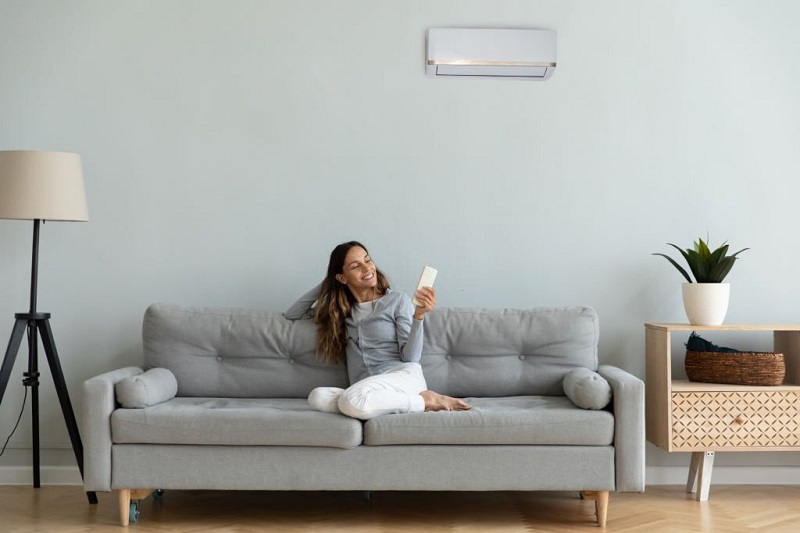Air conditioning is a system that controls the temperature, humidity, and air quality of an enclosed space to provide a more comfortable living or working environment. It works by circulating cooled and dehumidified air. An air conditioner helps reduce humidity levels and improve air quality while providing temperature control and increased comfort. Air conditioning is commonly used in homes, offices, and vehicles and has become an essential component of modern living.

Global Acceptance Of Air Conditioners
Air conditioning is widely used globally. It is trendy in countries with hot climates and is commonly found in homes, offices, vehicles, and public spaces such as shopping centers, cinemas, and restaurants. The widespread use of air conditioning has increased dramatically over recent decades, driven by factors such as population growth, urbanization, and the growing awareness of its benefits. Today, air conditioning is considered a basic necessity in many parts of the world, making it one of the most widely used technologies globally.
Benefits Of Air Conditioning
- Temperature Control: Air conditioning regulates the temperature in an enclosed space, allowing people to maintain a comfortable environment even in hot weather.
- Improved Air Quality: Air conditioning helps reduce humidity levels, which can improve air quality by reducing mould growth and other allergens. It also filters the air, removing impurities and providing a healthier living environment.
- Increased Comfort: Air conditioning provides a comfortable and controlled environment, helping to reduce stress and improve overall well-being.
- Energy Efficiency: Air conditioning can be energy efficient, which can help lower energy bills and reduce greenhouse gas emissions.
- Wide-Ranging Applications: Air conditioner is widely used in homes, offices, vehicles, and public spaces, making them an essential component in many industries and sectors.
How To Install An Air Conditioner
- Location: Choose a suitable location for indoor and outdoor units based on accessibility and electrical requirements.
- Installing the indoor and outdoor unit: Install a support bracket for the indoor unit, following the manufacturer’s instructions. Mount the outdoor unit on a concrete slab or bracket, following the manufacturer’s instructions.
- Electrical connection: Connect the two units with conduit and electrical wiring, following local codes and regulations. Followed by installing the discharge and suction pipes, ensuring proper insulation and refrigerant flow.
- Ready to use: Connect the power supply to the outdoor unit and electrical control box. Charge the system with refrigerant and test for leaks. Turn on the power and test the air conditioner for proper operation.
These points are a simplified overview, and it is essential to follow the manufacturer’s instructions and local codes and regulations. Hiring a licensed professional to install the air conditioner is recommended for safety and proper operation.

Things To Remember Before Buying An Air Conditioner
Buying an air conditioner requires some research and consideration. Here are the steps you can follow:
- Determine the room size: Air conditioners are rated by BTUs (British Thermal Units) per hour, and you’ll need to know the size of the room you want to cool to determine which unit you need.
- Consider the type of air conditioner: There are several types, including central air conditioners, window units, portable air conditioners, and split systems. Choose the one that best fits your needs and space.
- Decide on the features you want: Features include programmable thermostats, energy efficiency, remote control, and air filters.
- Set a budget: Air conditioners vary widely in price, so you should start exploring the different options available in the market and then find the best option based on your specifications.
- Research brands: Look for reliable brands with good customer reviews and warranties.
- Read product specifications: Before making a purchase, read the specifications to ensure that they meet your needs and requirements. Ensure you understand how to operate and maintain your air conditioner properly.
- Shop around: The internet has made it easier for you to access information at the click of a button. You can shortlist the option, compare the rates and then make a call.
- Install the air conditioner properly: Improper installation can decrease efficiency and increase the risk of damage to the unit, so it’s essential to have it installed by a professional.
- Maintain the air conditioner: Regular maintenance will keep it running efficiently and extend its lifespan.
Wrapping it up !!!
In conclusion, buying an air conditioner is a significant investment, so make sure you choose the right one for your needs and budget. Take time, research, compare prices and features, and consult with professionals.

